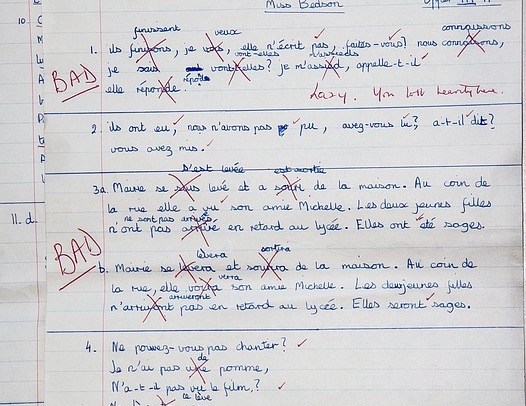Score High in JAMB With EduPadi CBT App
Practice JAMB CBT, get instant results, and understand solutions in-depth with smart AI insights.

How To Ace Your IELTS Examination In 8 Steps

IELTS stands for International English Language Testing System. It is a testing system that evaluates your English Language skills based on four crucial categories of a language.
Which are listening, reading, writing and speaking.
The IELTS test is established and owned by the British Council, Australia and Cambridge Assessment English.
Do you know that the IELTS can help you secure a job or study?
Yes, the IELTS can help you achieve your education or career goals.
Meanwhile, with the IELTS test, you can enrol at a university, register for a visa from the government, or apply to business organizations worldwide.
However, the Academic IELTS is required for university or college admission, while the General Training IELTS is for career and immigration purposes.
So, what is the purpose of taking the IELTS exam?
The purpose of the IELTS exam is to check and evaluate your English Language proficiency through the IELTS score.
In this article, we will explain how you can ace your IELTS exam and get high scores.
Recommended: IELTS Exams: Everything You Need To Know
8 Steps To Ace Your IELTS Examination
1. Study Vocabulary Words
To get good at your language skills, you must keep learning new words daily. Please pay attention to words you are not familiar with, memorize them and write their definitions down every time.
Create an example sentence with each new word you discover
This exercise will improve your understanding faster and also improve your language level effectively.
2. Reading
Reading is one of the best ways to improve your English Language skills. It is an easy method to increase intelligence and endurance.
To improve your reading skills, you must set time aside to read daily. Preview the texts you read.
In a nutshell, reading helps you gain clarity and knowledge and expand your reasoning faculty.
If you want to get a good score on the IELTS examination, cultivate the habit of reading daily.
3. Boost Your Writing Skills
If you want to express your ideas and thoughts effectively and clearly, always follow the basics in writing.
Practising writing in simple, direct, and clear words will boost your writing skills.
Since IELTS falls under four categories, getting good at writing can increase your score.
The bottom line is to practice writing to improve your accuracy and speed.
Also, study good pieces of writing to increase and improve your creativity.
4. Work on Your Word Pronunciation
The IELTS exam speaking components are divided into three parts, which include a well-structured interview, a short talk, and a free interview.
Get familiar with words you don't know by practising self-talk and listening to podcasts and movies to get the correct pronunciation.
Record yourself speaking, talk to your friends, and remember to memorize them.
5. Work on Your Listening Skills
If you don't want to miss out on questions during the IELTS exam, you must train your ears to listen to questions attentively.
Many students fail to prepare for this aspect of English Language skills.
Listening to the news on the radio can improve your English language skills effortlessly.
So, schedule a time each day to listen to different speakers' accents on various topics.
6. Get Yourself Familiar With The Test
Like all other International language testing systems, IELTS has a unique format and setting. So, get acquainted with the details and prepare yourself before the day.
Research deeply how long the test is, the types of questions, what skills you need to have, and so on.
Figure out everything you need to know about the guidelines and how to assess the tests.
7. Read And Follow The Instructions Carefully
The fastest way to miss out on questions and lose marks is not paying rapt attention to the instructions.
Before you answer any question, read the instructions carefully and thoroughly.
Follow the instructions diligently and input the correct answer in the appropriate place.
Moreso, pay attention to spelling and capitalization.
8. Be Time Conscious
Knowing how to manage your time during examinations is a skill you must learn.
Don't waste time on questions you don't know; answer the ones you know first and return to the difficult questions when you finish answering the simple ones.
In a nutshell, take your time to revise your work before the final submission.
Takeaways
Finally, getting an IELTS band score of 9 is possible. If you can read and practice consistently to improve your English language skills: getting a high score is guaranteed.
Make sure you take IELTS mock test samples before the day. Understand the test format and train yourself to communicate fluently and coherently.
If you can follow all these tips, rest assured that you will pass the IELTS exam. I am rooting for you!
Got any questions? Drop it in the comment section. Like and Follow our Page on Facebook.


